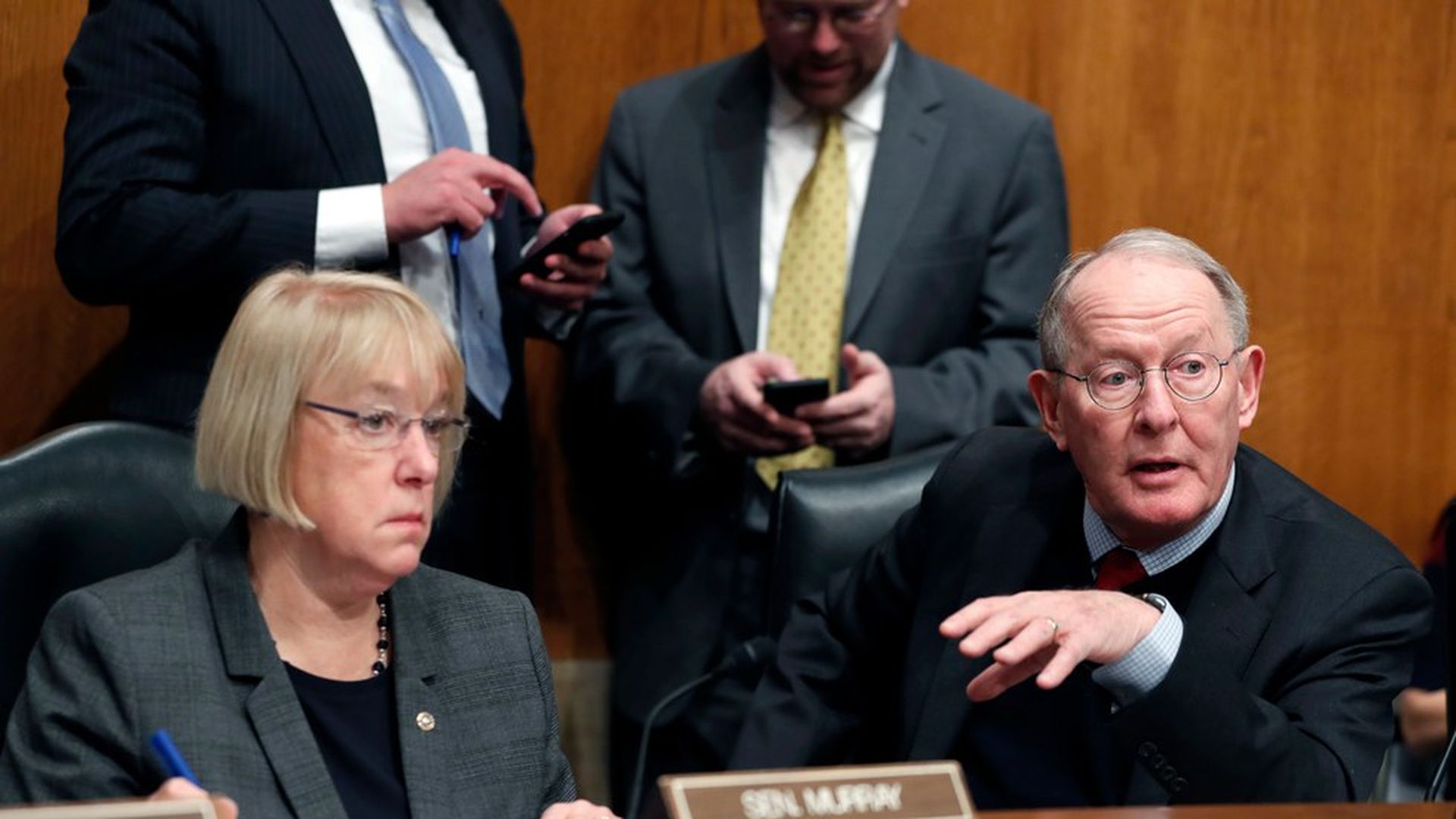Experts say new, cheaper set of ACA plans wouldn't change much
Add Axios as your preferred source to
see more of our stories on Google.

Lamar Alexander wants to expand access to bare-bones insurance policies. (AP Photo/Alex Brandon, File)
Senate HELP Committee Chairman Lamar Alexander has made it clear that he's interested in letting people older than 30 buy "copper," or catastrophic, insurance plans through the Affordable Care Act's exchanges. He's talked about expanding access to those policies as part of a bill to stabilize the ACA's marketplaces. So, how exactly would this work?
- A catastrophic plan — which is already available to people younger than 30 — is a policy whose deductible is equal to the law's cap on out-of-pocket spending.
- The catch, as Larry Levitt of the Kaiser Family Foundation points out, is that a catastrophic plan is "pretty much indistinguishable from a bronze plan" in terms of how much of an enrollee's health care costs it covers.
- To resolve this, the law's out-of-pocket maximum would have to be waived.
Experts from different ideologies generally agree that making this change wouldn't have major consequences. Best-case scenario, it would bring more young, healthy people into the marketplace. Worst-case scenario, is would siphon off some of these young, healthy people from more comprehensive plans, raising premiums for people still enrolled in them.
Here's what the experts said:
- American Enterprise Institute's Joe Antos: "Adding a copper plan doesn't address the fundamental problem" of how the ACA deals with young, healthy people. "It's not just that they want a cheaper plan, it's that they want a cheaper plan that better fits their circumstances."
- Levitt: "A copper plan, with lower premiums and higher deductibles, would modestly increase enrollment, particularly among healthier people. The effect wouldn't be huge, but it would move enrollment and the risk pool in the right direction."
- Chris Jennings, a Democratic policy wonk: "The political question is this: Is the relatively harmlessness of the policy in real terms worth the time to develop, implement and confuse people (and in some cases get them mad) worth the political benefit of having more broad-based political investment in the Affordable Care Act?"
- Brookings' Matthew Fiedler: If the plan is significantly less comprehensive than other options, "then there is a risk that it will siphon off healthier individuals from the existing metal tiers, driving up premiums for those plans, while leaving enrollees in the new copper tier with relatively weak protection against out-of-pocket costs."
